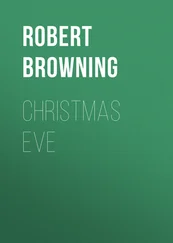Robert Browning - Pomegranates from an English Garden
Здесь есть возможность читать онлайн «Robert Browning - Pomegranates from an English Garden» — ознакомительный отрывок электронной книги совершенно бесплатно, а после прочтения отрывка купить полную версию. В некоторых случаях можно слушать аудио, скачать через торрент в формате fb2 и присутствует краткое содержание. Жанр: foreign_antique, foreign_prose, на английском языке. Описание произведения, (предисловие) а так же отзывы посетителей доступны на портале библиотеки ЛибКат.
- Название:Pomegranates from an English Garden
- Автор:
- Жанр:
- Год:неизвестен
- ISBN:нет данных
- Рейтинг книги:5 / 5. Голосов: 1
-
Избранное:Добавить в избранное
- Отзывы:
-
Ваша оценка:
- 100
- 1
- 2
- 3
- 4
- 5
Pomegranates from an English Garden: краткое содержание, описание и аннотация
Предлагаем к чтению аннотацию, описание, краткое содержание или предисловие (зависит от того, что написал сам автор книги «Pomegranates from an English Garden»). Если вы не нашли необходимую информацию о книге — напишите в комментариях, мы постараемся отыскать её.
Pomegranates from an English Garden — читать онлайн ознакомительный отрывок
Ниже представлен текст книги, разбитый по страницам. Система сохранения места последней прочитанной страницы, позволяет с удобством читать онлайн бесплатно книгу «Pomegranates from an English Garden», без необходимости каждый раз заново искать на чём Вы остановились. Поставьте закладку, и сможете в любой момент перейти на страницу, на которой закончили чтение.
Интервал:
Закладка:
HOME THOUGHTS, FROM THE SEA
Nobly, nobly Cape Saint Vincent to the North-West died away;
Sunset ran, one glorious blood-red, reeking into Cadiz Bay;
Bluish ’mid the burning water, full in face Trafalgar lay;
In the dimmest North-East distance dawned Gibraltar grand and grey;
“Here and here did England help me: how can I help England?” – say,
Whoso turns as I, this evening, turn to God to praise and pray,
While Jove’s planet rises yonder, silent over Africa.
The former of these companion poems may have been written from Italy or the south of Spain, as would appear from the last line of it. Mr. E. C. Stedman, one of the severest of Browning’s appreciative critics, commenting (in his “Victorian Poets”) on the lines beginning “That’s the wise thrush,” says: – “Having in mind Shakespeare and Shelley, I nevertheless think these three lines the finest ever written touching the song of a bird.”
In the latter poem, the course is from the southern point of Portugal through the Straits. “Here and here” – the reference is to the battles of Cape St. Vincent (1796) and Trafalgar (1805), and perhaps to the defence of Gibraltar (1782).
“HOW THEY BROUGHT THE GOOD
NEWS FROM GHENT TO AIX.”
I sprang to the stirrup, and Joris, and he;
I galloped, Dirck galloped, we galloped all three;
“Good speed!” cried the watch, as the gate-bolts undrew;
“Speed!” echoed the wall to us galloping through;
Behind shut the postern, the lights sank to rest,
And into the midnight we galloped abreast.
Not a word to each other; we kept the great pace
Neck by neck, stride by stride, never changing our place;
I turned in my saddle and made its girths tight,
Then shortened each stirrup, and set the pique right,
Rebuckled the cheek-strap, chained slacker the bit,
Nor galloped less steadily Roland a whit.
’Twas moonset at starting; but while we drew near
Lokeren, the cocks crew and twilight dawned clear;
At Boom, a great yellow star came out to see;
At Düffeld, ’twas morning as plain as could be;
And from Mecheln church-steeple we heard the half-chime,
So, Joris broke silence with, “Yet there is time!”
At Aershot, up leaped of a sudden the sun,
And against him the cattle stood black every one,
To stare thro’ the mist at us galloping past,
And I saw my stout galloper Roland at last,
With resolute shoulders, each butting away
The haze, as some bluff river headland its spray:
And his low head and crest, just one sharp ear bent back
For my voice, and the other pricked out on his track;
And one eye’s black intelligence, – ever that glance
O’er its white edge at me, his own master, askance!
And the thick heavy spume-flakes which aye and anon
His fierce lips shook upwards in galloping on.
By Hasselt, Dirck groaned; and cried Joris, “Stay spur!
“Your Roos galloped bravely, the fault’s not in her,
“We’ll remember at Aix” – for one heard the quick wheeze
Of her chest, saw the stretched neck and staggering knees,
And sunk tail, and horrible heave of the flank,
As down on her haunches she shuddered and sank.
So, we were left galloping, Joris and I,
Past Looz and past Tongres, no cloud in the sky;
The broad sun above laughed a pitiless laugh,
’Neath our feet broke the brittle bright stubble like chaff;
Till over by Dalhem a dome-spire sprang white,
And “Gallop,” gasped Joris, “for Aix is in sight!”
“How they’ll greet us!” – and all in a moment his roan
Rolled neck and croup over, lay dead as a stone;
And there was my Roland to bear the whole weight
Of the news which alone could save Aix from her fate,
With his nostrils like pits full of blood to the brim,
And with circles of red for his eye-sockets’ rim.
Then I cast loose my buffcoat, each holster let fall,
Shook off both my jack-boots, let go belt and all,
Stood up in the stirrup, leaned, patted his ear,
Called my Roland his pet-name, my horse without peer;
Clapped my hands, laughed and sang, any noise, bad or good,
Till at length into Aix Roland galloped and stood.
And all I remember is, friends flocking round
As I sat with his head ’twixt my knees on the ground;
And no voice but was praising this Roland of mine,
As I poured down his throat our last measure of wine,
Which (the burgesses voted by common consent)
Was no more than his due who brought good news from Ghent.
The indefiniteness of the date at the head of this poem will be best explained by the following extract from a letter of Mr. Browning’s, published in 1881 in the Boston Literary World : —
“There is no sort of historical foundation about ‘Good News From Ghent.’ I wrote it under the bulwark of a vessel off the African coast, after I had been at sea long enough to appreciate even the fancy of a gallop on the back of a certain good horse ‘York,’ then in my stable at home.”
This poem, therefore, widely known and appreciated as one of the most stirring in the language, may be regarded as a living picture to illustrate the pages – no page in particular – of Motley.
As parallels in American literature, reference may be made to “Paul Revere’s Ride,” by Longfellow, and “Sheridan’s Ride,” by T. B. Reade.
ECHETLOS
Here is a story, shall stir you! Stand up, Greeks dead and gone,
Who breasted, beat Barbarians, stemmed Persia rolling on,
Did the deed and saved the world, since the day was Marathon!
No man but did his manliest, kept rank and fought away
In his tribe and file: up, back, out, down – was the spear-arm play:
Like a wind-whipt branchy wood, all spear-arms a-swing that day!
But one man kept no rank, and his sole arm plied no spear,
As a flashing came and went, and a form i’ the van, the rear,
Brightened the battle up, for he blazed now there, now here.
Nor helmed nor shielded, he! but, a goat-skin all his wear,
Like a tiller of the soil, with a clown’s limbs broad and bare,
Went he ploughing on and on: he pushed with a ploughman’s share.
Did the weak mid-line give way, as tunnies on whom the shark
Precipitates his bulk? Did the right-wing halt when, stark
On his heap of slain, lay stretched Kallimachos Polemarch?
Did the steady phalanx falter? To the rescue, at the need,
The clown was ploughing Persia, clearing Greek earth of weed,
As he routed through the Sakian and rooted up the Mede.
But the deed done, battle won, – nowhere to be descried
On the meadow, by the stream, at the marsh, – look far and wide
From the foot of the mountain, no, to the last blood-plashed sea-side, —
Not anywhere on view blazed the large limbs thonged and brown,
Shearing and clearing still with the share before which – down
To the dust went Persia’s pomp, as he ploughed for Greece, that clown!
Интервал:
Закладка:
Похожие книги на «Pomegranates from an English Garden»
Представляем Вашему вниманию похожие книги на «Pomegranates from an English Garden» списком для выбора. Мы отобрали схожую по названию и смыслу литературу в надежде предоставить читателям больше вариантов отыскать новые, интересные, ещё непрочитанные произведения.
Обсуждение, отзывы о книге «Pomegranates from an English Garden» и просто собственные мнения читателей. Оставьте ваши комментарии, напишите, что Вы думаете о произведении, его смысле или главных героях. Укажите что конкретно понравилось, а что нет, и почему Вы так считаете.












